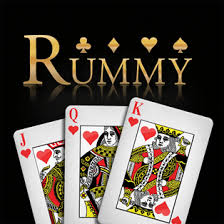Card Game Rummy, Rummy, a beloved classic card game with roots stretching back centuries, continues to captivate players of all ages with its blend of strategy, skill, and a touch of luck. Whether you’re a seasoned card shark or a newcomer eager to learn, understanding the game’s nuances can elevate your enjoyment and mastery. Here’s a deep dive into the world of Rummy, covering its history, rules, and variations that keep this game as fresh and exciting as ever.
A Brief History of Rummy
Rummy’s origins are somewhat murky, but most historians agree that it evolved from a group of games related to the traditional game of Conquian, which is believed to have been played in Mexico in the 19th century. As Conquian spread, it morphed into various forms, eventually leading to the modern versions of Rummy we know today. By the early 20th century, Rummy had gained popularity across the globe, with its easy-to-learn rules and engaging gameplay.
Basic Rules and Gameplay
Objective: The primary goal in Rummy is to form sets and runs from the cards you are dealt. A set consists of three or four cards of the same rank but different suits (e.g., 7♠, 7♥, 7♦), while a run is a sequence of three or more consecutive cards of the same suit (e.g., 4♣, 5♣, 6♣).
Setup: Rummy can be played with 2 to 6 players using a standard 52-card deck. For more than four players, a second deck is usually added. Each player is dealt a set number of cards, typically 10 for a 2-player game or 7 for a 4-player game. The remaining cards form the draw pile, with one card placed face-up to start the discard pile.
Gameplay: Players take turns in a clockwise direction, with each turn consisting of drawing a card (either from the draw pile or the discard pile) and then discarding a card. The goal is to organize your cards into valid sets and runs. The game ends when a player “goes out” by forming all their cards into sets and/or runs and discarding their final card.
Scoring: When a player goes out, the remaining players reveal their hands, and points are tallied based on the cards left in their hands. Face cards are worth 10 points each, aces are worth 1 point, and numbered cards are worth their face value. The player with the lowest total score wins the round, and the game can be played over multiple rounds to determine the overall winner.
Popular Variations of Rummy
- Gin Rummy: A two-player version that speeds up the game by having players draw and discard cards to form sets and runs, with a focus on melding and knocking.
- Indian Rummy: Typically played with two decks and two jokers, where players aim to form valid sets and runs. Indian Rummy often involves dealing 13 cards to each player and can be played with 2 to 6 players.
- Kalooki (or Kaluki): A popular variation in which players aim to lay down their entire hand in valid combinations. It often involves two decks and jokers, and features rules for declaring and scoring that vary by region.
- Oklahoma Rummy: A variant with a unique twist where the initial discard sets the value of the jokers for that round, adding an extra layer of strategy.
Strategy and Tips
- Observe Your Opponents: Pay close attention to the cards your opponents pick up and discard. This can give you clues about the sets and runs they are working on.
- Manage Your Hand: Aim to keep your hand flexible by holding onto cards that can potentially form multiple combinations. Avoid holding onto high-value cards unless they are part of a set or run.
- Use Jokers Wisely: In games with jokers, use them strategically to complete sets or runs. However, remember that they can also increase your opponents’ chances of going out if they see you holding onto them.
- Keep Track of the Discards: Remembering which cards have been discarded can help you make better decisions about which cards to keep or discard.
Conclusion
Rummy’s enduring popularity is a testament to its rich combination of strategy, skill, and social interaction. Its variety of forms means there’s a version of Rummy to suit almost any player or group. Whether you’re enjoying a casual game with family or competing in a more formal setting, mastering Rummy can provide endless hours of entertainment and challenge. So shuffle those cards, deal out the hands, and dive into the timeless world of Rummy.




